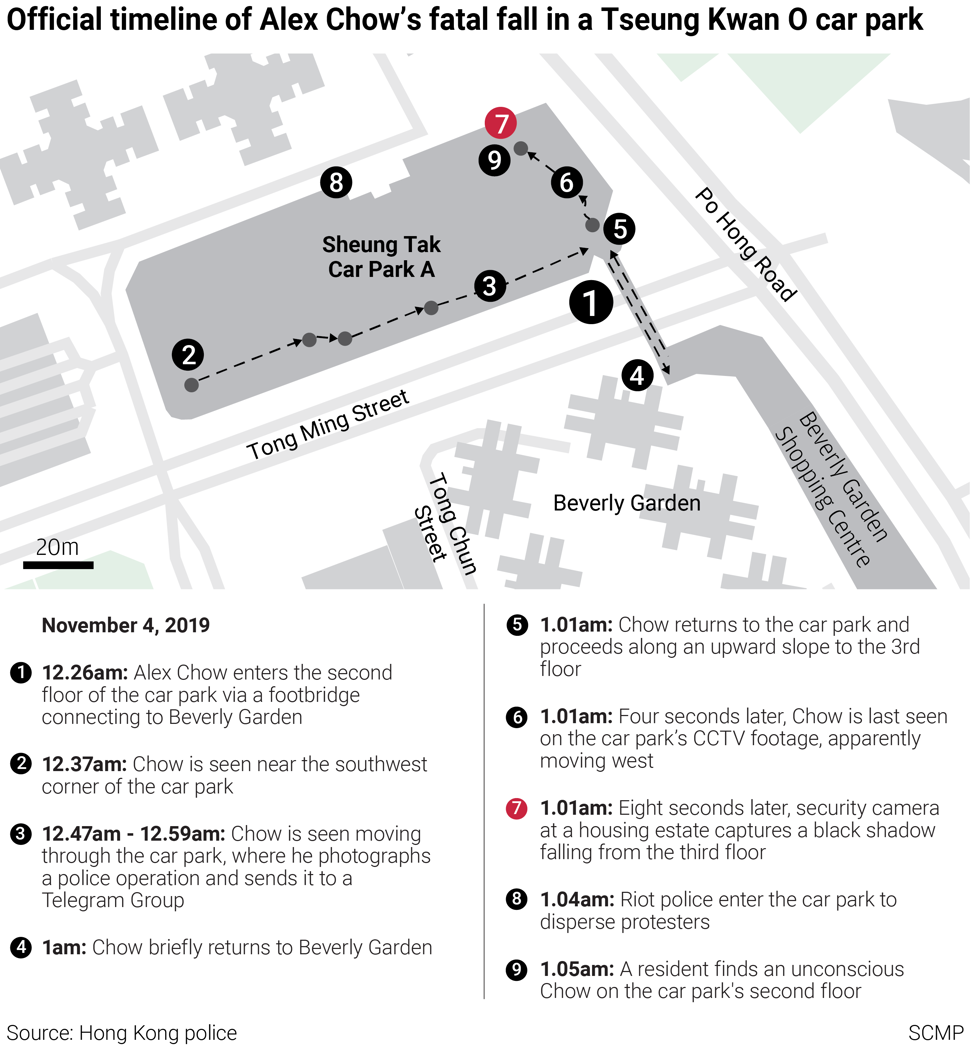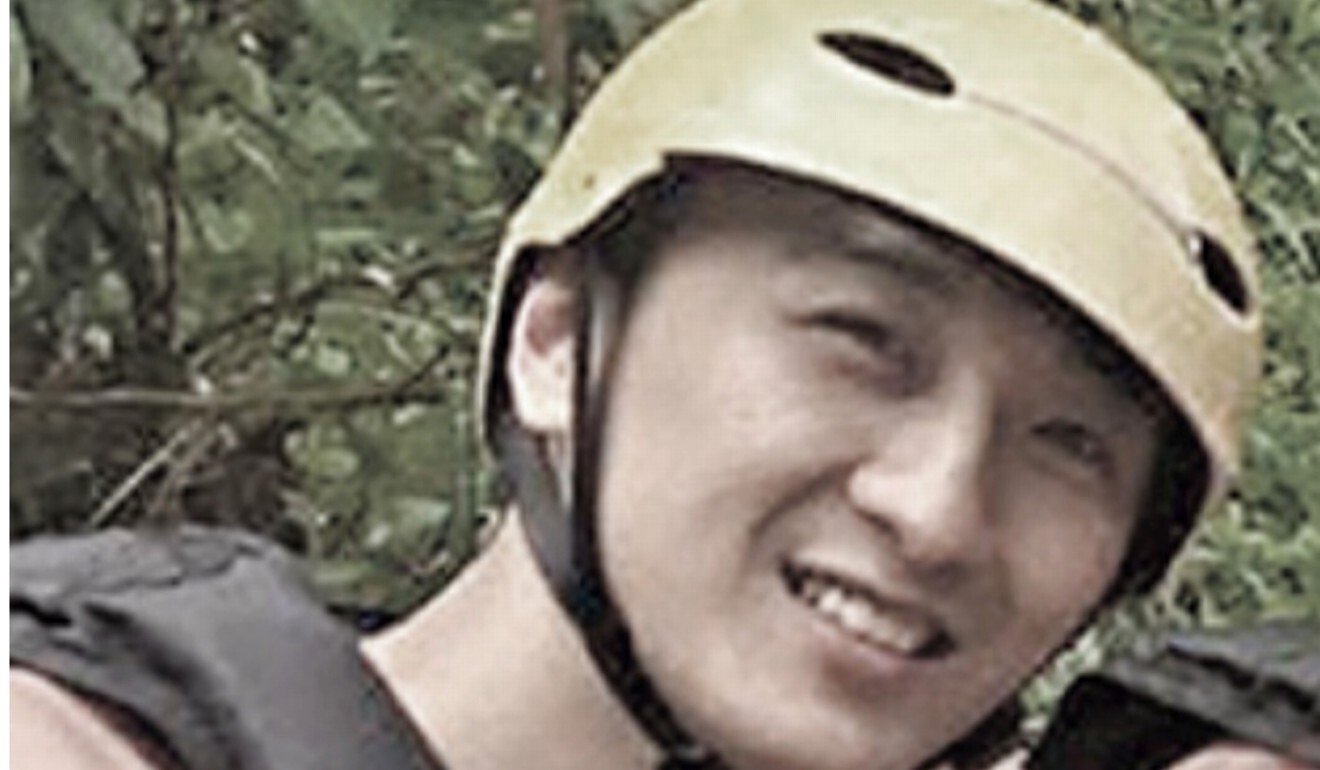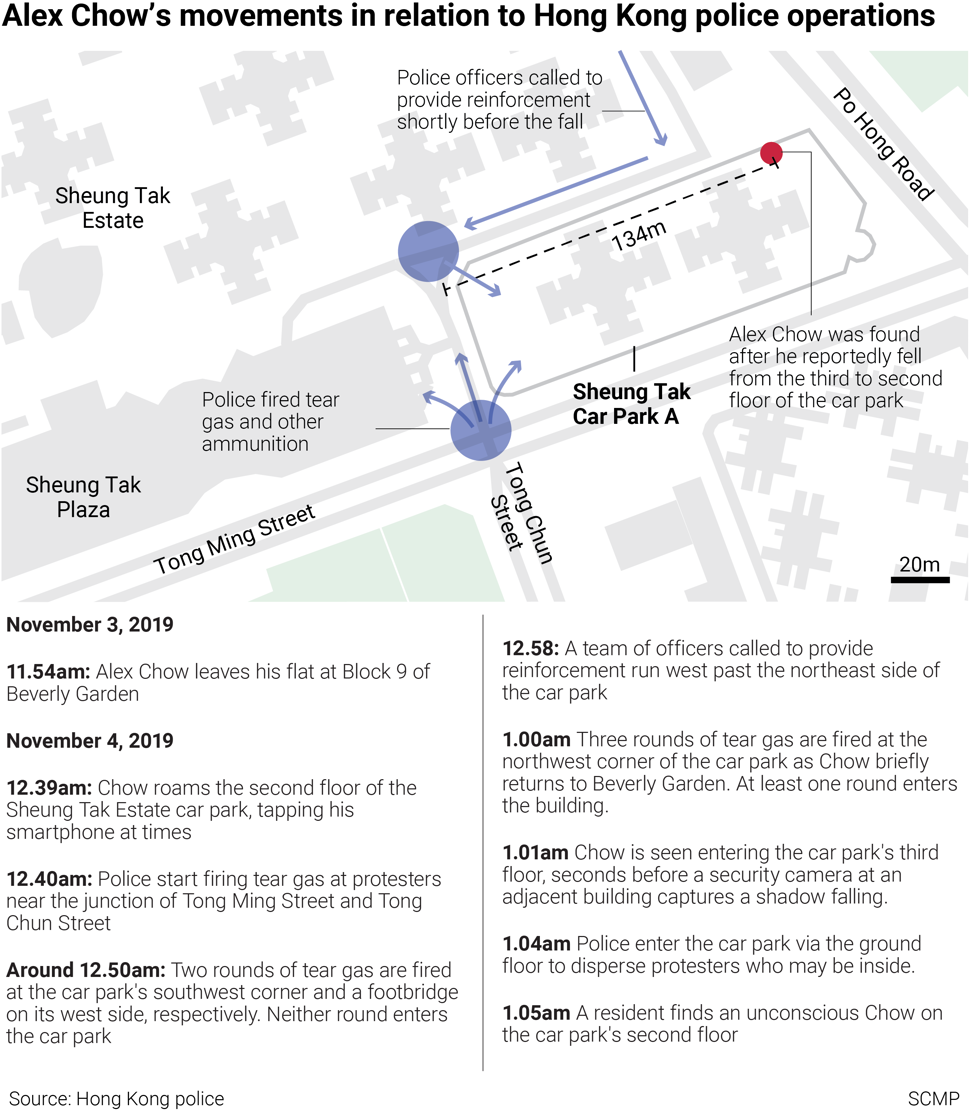
Hong Kong protests: inquest jury unable to decide on cause of student’s death in car park after first day of deliberations
- Ruling the death accidental allowed if conclusion thought relatively likely based on the evidence, coroner tells five-member panel
- The 22-year-old student’s death had inflamed tensions between protesters and police at height of anti-government movement
An inquest jury was unable to decide on the cause of a Hong Kong student’s fatal fall inside a car park near the site of a protest two years ago on the first day of deliberations.
The five-member panel moved behind closed doors on Friday following a five-week inquest into the death of Alex Chow Tsz-lok, but failed to arrive at a verdict after more than six hours of discussions. They told Coroner Ko Wai-hung they required no help from the court as of yet, but were still making findings on the facts of the case.
The jury at the West Kowloon Law Courts Building in Cheung Sha Wan will spend Friday night at the High Court in Admiralty, equipped with basic amenities for jurors, before resuming deliberations on Saturday.
Earlier in the day, Ko asked the jurors to decide whether the death of the 22-year-old was homicide, but he stressed that concluding Chow was unlawfully killed came with high hurdles, as they had to be satisfied there was no other way to explain his fall in November 2019.
The jury could, however, rule Chow plunged four metres to his death inside the multistorey complex by accident, Ko said, if they found it was relatively likely based on the evidence submitted at the inquest at the Coroner’s Court.

Only if they failed to arrive at one of those two conclusions should they consider delivering an open verdict, Ko added.
In his directions to the jury on Thursday, the coroner ruled out the possibility that Chow was pushed over the edge of the car park, saying there was no medical evidence to support that judgment.
Hundreds of residents assembled at the car park in Tseung Kwan O where Chow fell, creating a makeshift shrine on November 8, 2019, the day he died from his injuries.
Thousands, including Chow’s friends, schoolmates, teachers, politicians and strangers, paid tribute to him at a memorial service a month later.

The incident generated more protests, even prompting radicals to plot a bomb attack against police during a monthly ceremony at the car park where protesters mourned the student’s demise.
Chow was found with severe head injuries on the second floor of the Sheung Tak Estate car park in the early hours of November 4, 2019, as police were dispersing protesters at a nearby demonstration. He died in hospital four days later following a cardiac arrest.
No security camera captured his movements as he entered the building’s third floor, eight seconds before the fall.

Critics have questioned whether police obstructed or delayed Chow’s treatment while dispersing protesters at the nearby demonstration. Some also suggested he might have jumped from the building either because he was affected by tear gas fired, or because he was being chased by officers.
Kowloon East Senior Superintendent Foo Yat-ting denied those accusations at a police briefing the day after Chow’s fall, while Superintendent Wu Ka-yan said the student might have leaped over the edge of the car park under the misconception he would land on a footpath behind it instead of plunging four metres to the floor below.
A lawyer for the force maintained that stance at the inquest, insisting it was the only conclusion that could be made, particularly when security footage revealed two unidentified men had also thought there was cover behind the wall and attempted to jump over it on the same night, only to stop at the final moment.
But Chow’s family lawyer warned against making “bold assertions”, adding it would be “very dangerous” to assume he would make the same mistake as the duo without concrete evidence.
